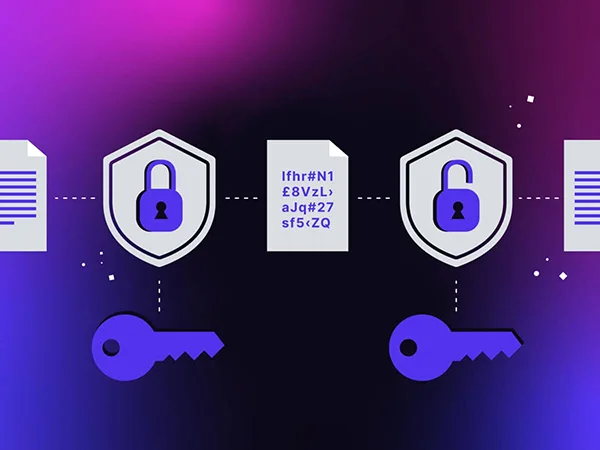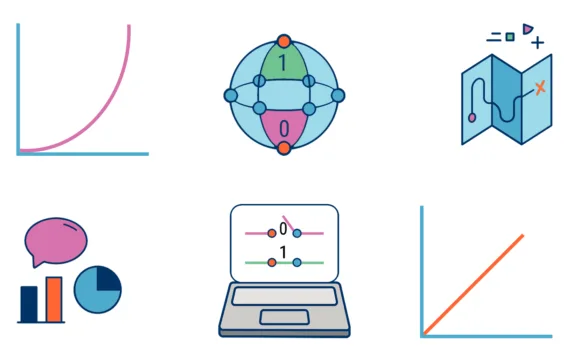The Impact of Quantum Computing on Encryption
Unlike the traditional binary coding system, the quantum data processing system allows dramatic changes to revolutionize encryption. The traditional way depends on mathematical problems, which are difficult for typical computers.
But the higher-level ones have no problem-solving issues much faster, using algorithms like Shor’s algorithm that allows a large-scale computer to quickly break all the lock systems currently used to secure internet traffic against unauthorized access.
It also offers solutions like the Quantum Code Distribution that promises unbreakable security by implementing the technical mechanics to secure the communication channels.
Although the sudden arrival of AI in the world of technology might have blurred it, computing systems remain the epitome of revolutionary marvels in the world of technological developments.
The stability of the current safety standards is perhaps the first long-established standard that ultra-fast processors will put into question.
Not yet sure about how the cryptography impacts the security? Read the article to find out what humanity is doing to prepare for the same. Also, learn about the Future of Cloud Computing in this guide.
How Does Modern Encryption Keep Data Safe?

The best contemporary encryption techniques, like AES and RSA, hinge on current devices only being able to solve mathematical problems sequentially.
For example, RSA is an asymmetric algorithm that securely encrypts websites and any data you transmit to or from them. Being asymmetric means anyone can generate a public key to encrypt something. Only a recipient with a private decryption token can decode the information in question.
RES works by factoring two large prime numbers. Discovering which two prime numbers fit to reach the correct result takes conventional algorithmic devices millennia and more to solve. This is because they have to test and reject every incorrect option sequentially, and there’s an unfathomable number of combinations to try.
Did You Know?
According to research conducted by Zion Market Research, the global quantum computing market size is projected to reach $5274.9 million by 2030.
How Are Quantum Computers Different?

Rather than brute-force an answer, quantum computers are expected to eventually be able to develop probabilistic models for solutions to problems that stump current machines. In RES’s case, a sufficiently advanced device could use Shor’s algorithm to drastically reduce the time it takes to crack such a password.
Now, computing devices use bits to represent the information. A bit can only take up two states, represented by 0 and 1. Quantum machines use cubits or tiny bits instead. They can take on any value between the two extremes.
This makes their methods more flexible and usable for probabilistic problem-solving, where solutions that are sufficiently statistically likely to be correct emerge far faster than definitive ones.
Are Quantum Computers A Threat To Current Encryption Methods?

Not yet, and they likely won’t be for a time yet. The most advanced QPUs developed by IBM currently have around a thousand cubits worth of processing power. While the cubit count and circuit development are growing steadily, the technology is far from advanced enough to tackle any serious encryption standard.
Emphasis on the word yet.
Interest and funding for ultrahigh-speed computer development are rising, as is the rate of development. It would be irresponsible to predict when today’s safeguarding methods are likely to become old-fashioned since development is speeding up and pushing milestones forward with each breakthrough.
We can predict that at some distant point, but sooner than we anticipate, state-of-the-art safety measures from the 2020s are going to no longer do.
The impact could be devastating if nation-states and companies don’t preemptively create countermeasures. Data that seems secure now could suddenly become accessible to anyone with a large-scale computer on hand.
It seems that there won’t be many bad actors with the required resources initially. Still, one armed with decades’ worth of collected records they can suddenly decrypt could be all it takes.
Personal cybersecurity would naturally be affected, too. Take password managers, for example. They’re among the most effective tools for preventing account theft and privacy breaches. They generate secure passwords and keep them in encrypted vaults. These vaults use encryption algorithms like AES-256 and XChaCha20, which may not be enough to withstand future quantum-based attacks.
The Future Of Encryption
Practical high-frequency systems might still be a ways off, but there’s no time like the present to act. The National Institute of Standards and Technology (NIST) already drew cryptographers’ attention to the high-frequency threat in 2016. They’ve come up with several approaches in the meantime, ushering in the dawn of supercomputer-resistant encryption.
Lattice-based cryptography is currently the most promising technology. It relies on finding the shortest path between two points in a multidimensional grid.
Conversely, its information distribution uses fiber optic cables to transmit decryption data. Only the sender and receiver know the information and can detect if anyone is eavesdropping on the transfer.
Other promising avenues of research include multivariate, isogeny, and code-based authentication strategies.
Conclusion
Quantum technology isn’t the stuff of science fiction anymore, but neither is it refined enough to threaten the sophisticated security methods we use today.
This is bound to inevitably change, so keeping up with the technology and developing ways of adapting is in everyone’s best interest.
